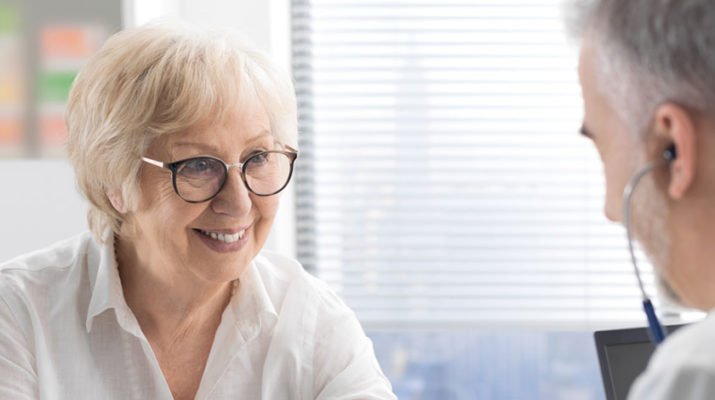With doctor visits getting shorter and shorter, knowing what to ask the doctor is crucial
By Deborah Jeanne Sergeant
With electronic medical records, tighter margins for medical practices and a shortage of providers, most doctors cannot offer their patients much time to talk during visits. To get the most out of your visit, plan ahead the questions you should ask.
Local experts offered a few ideas.
• “Write those questions down. It’s easy to forget in the moment. Give the list to the nurse before the physician even comes in. The nurse may ask, ‘What’s going on?’ so that is a good time to present that list. Don’t assume that if you have 10 to 15 questions they’ll have time, so pick your top few.
• “Ask about medications and side effects of what you’re currently taking or how a new medication may interact.
• “A lot of seniors experience things they think are part of old age but don’t necessarily fall into normal aging, whether memory, balance or what they think is a side effect of a medication.”
— Diane Oldenburg, senior public health educator, Oswego County Public Health
• “In men, it’s prostate health and erectile dysfunction. There are a lot of urologic conditions that can indicate other things, so it’s important to mention these. Some men with erectile dysfunction may come in and there’s also cardiac issues going on that are related.
• “Let your doctor know exactly the truth. Don’t be ashamed of anything. By doing that, it’s going to make the physician’s job much easier.”
— Urologist David Albala, AMP Urology
• “’This is what I want to do’ or ‘This is what I’d like’ or “This is what is important to me.’ The physician should know that.
• “They should talk about their family history. Have their parents passed from a rare condition or something that’s common? A lot of conditions and diseases run in families. If your mother and father had heart attacks, it means you’re at increased risk.
• “People don’t tend to bring up infectious diseases. Back in the ‘80s when HIV was identified, it was a death sentence. Now it can be treated and you’ll most likely die of something else.
• “Talk about alcohol use or drug use. Drinking a fifth of vodka every other day can play a factor into other medications or condition.
— Physician William Jorgenson, medical director of Donald J. Mitchell VA Outpatient Clinic, Rome
• “If my patients are having any trouble getting through the day — grocery shopping, cooking or driving — people are reluctant to talk about it. If we discuss it earlier, we can set up a care plan to help that person stay as independent as possible. People get scared and then we reach a crisis point.
• “If they have any changes in their mood. A lot of older adults don’t want people to know if they’re feeling down or lonely. These changes are very manageable. We have resources to put into play that would help that person. If we address it early, we can help them.
• “So many worry if they have problems with their memory it’s that they have Alzheimer’s and there are many other things that can be impacting their memory that we can address. If it is Alzheimer’s, it’s important to address it early to avert any crisis.
• “If you don’t like any of your medications, or their side effects, let your doctor know. don’t just stop taking them. Or if you take supplements you got from a nutrition store or bought online, it’s important for the doctor to know. A lot of people think if they get it without a prescription and it’s ‘natural’ it’s OK, but it can interfere with anything else they’re taking or other health concerns.
• “We try really hard to communicate so patients understand what’s going on. If there’s something you don’t understand, don’t just nod. If the doctor isn’t able to answer all your questions, maybe the nurse can. And there are organizations that can help. We often refer patients to other local resources where they can get their questions answered.”
— Geriatrician Sharon Brangman, professor of medicine and head of the geriatric department at SUNY Upstate Medical University

